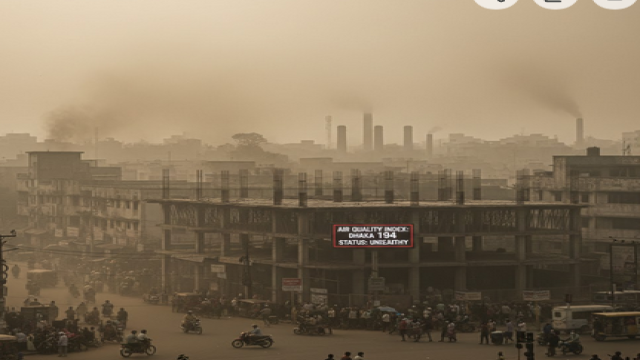At 9:10 am, Dhaka's air quality index (AQI) score of 96 placed it 11th among cities with the worst air quality globally. Leading the list were Vietnam’s Hanoi with an AQI of 179, followed by Kinshasa in the Democratic Republic of the Congo and Kampala in Uganda, both with scores of 174.
An AQI between 51 and 100 is classified as 'moderate', 101 to 150 as 'unhealthy for sensitive groups', 151 to 200 as 'unhealthy', 201 to 300 as 'very unhealthy', and a score above 301 is deemed 'hazardous', posing severe health risks.
In Bangladesh, AQI calculations consider five key pollutants: Particulate Matter (PM10 and PM2.5), nitrogen dioxide (NO2), carbon monoxide (CO), sulfur dioxide (SO2), and ozone.
Dhaka has consistently struggled with air pollution, particularly worsening in winter and slightly improving during the monsoon season. According to the World Health Organization, air pollution is responsible for approximately seven million deaths annually, due to conditions like stroke, heart disease, chronic obstructive pulmonary disease, lung cancer, and acute respiratory infections.































Comment: